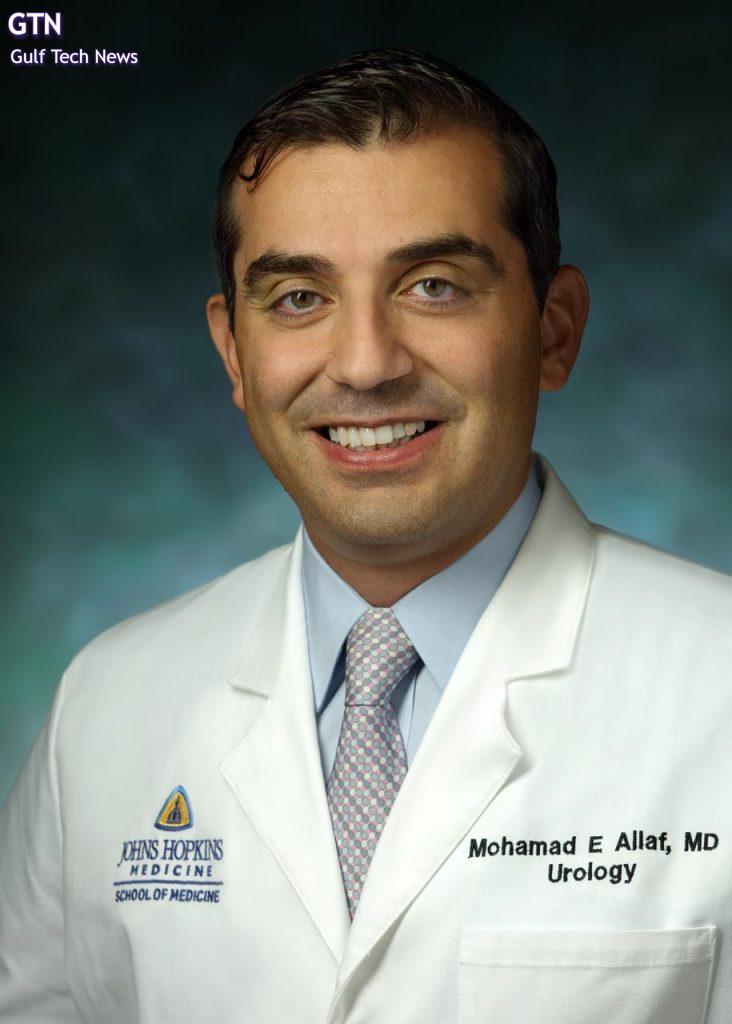Prostate Screening: The Silent MVP in Saving Lives

Authored by Dr. Mohammad Allaf, Urologist-in-Chief, Johns Hopkins Hospital, USA
In every winning team, there’s often an unsung hero — a player who quietly changes the outcome of the game without drawing the spotlight. In the fight against cancer, that silent MVP is screening.
In the Kingdom of Saudi Arabia, prostate cancer is often diagnosed after it has already spread to other parts of the body, which is associated with greater mortality , Yet early detection through simple screening can transform survival outcomes, turning what could be a late-stage battle into a story of prevention, timely care, and recovery.
At Johns Hopkins Medicine (JHM), we view cancer care not as a single event but as a continuum — a journey that begins long before diagnosis. An excellent example of this in practice can be seen in the Kingdom of Saudi Arabia, through the Oncology Center of Excellence at Johns Hopkins Aramco Healthcare (JHAH). Here, screening and early detection lie at the core of an advanced, integrated model.
For prostate cancer, this means moving away from a reactive system that waits for symptoms, to a proactive one that empowers men to take control of their health. Screening — through a simple blood test such as the PSA (prostate-specific antigen) — can identify cancer at its earliest, most treatable stages. When caught early, prostate cancer survival rates can be exceptionally high. However, when found late, treatment becomes more complex, costly, and difficult for patients and their families.
A Closer Look at the Challenge
In Saudi Arabia’s Eastern Province, prostate cancer ranks among the most common cancers in men. Yet too many cases are unnecessarily metastatic at diagnosis — meaning the disease has already spread beyond the prostate by the time it is detected.
In countries with well-established screening programs, prostate cancer is generally diagnosed before it spreads outside of the prostate.
When there is a widespread adoption of prostate cancer screening, both survival and quality of life are much improved for those men. Johns Hopkins Medicine has been a leader in developing the protocols and tools that help physicians screen for prostate cancer — through an integrated approach that brings together awareness, access, and advanced care.
Redefining Specialized Oncology Care
The Center of Excellence model for cancer care at Johns Hopkins Medicine brings together the best resources, expertise, and patient services under one coordinated system. In the Johns Hopkins model, we ensure that every step of the patient journey — from screening to survivorship — is managed seamlessly.
Through Johns Hopkins Medicine’s partnership with Johns Hopkins Aramco Healthcare (JHAH), we are adapting this proven Center of Excellence model to the specific care needs of the Saudi Arabian population.
At the new Oncology Center of Excellence at JHAH, patients benefit from multidisciplinary tumor boards, state-of-the-art diagnostics, and Johns Hopkins Medicine-based protocols that deliver precision and consistency. Screening is not treated as a side effort, but as an integral part of the patient care continuum. The moment a patient enters the system, the focus is on identifying risks early, connecting them swiftly to diagnostic testing, and building a personalized treatment plan if needed.
This model goes beyond medical excellence — it builds trust. It ensures that men across the Kingdom can access world-class cancer care close to home, supported by a team that has a deep understanding of local patients’ needs.
Empowering Men to Act Early
While the Center of Excellence model provides the structure, the real power lies in participation. Men must take the initiative to prioritize their own health. Too often, prostate cancer goes unnoticed because its early stages are silent — no pain, no visible symptoms, no immediate reason to worry. But silence does not mean safety.
Regular screening, particularly for men over 50 — or over 45 for those with a family history — can detect changes before they become life-threatening. Talking to a physician about screening should become as normal as an annual physical examination.
Screening isn’t just about saving one life — it’s about protecting families, preserving communities, and strengthening the fabric of society. Every early diagnosis means one more father, brother, or colleague who continues to contribute to his family and to Saudi Arabia’s progress.
Currently, the Health Sector Transformation Program, under Saudi Vision 2030, emphasizes prevention, early intervention, and access to specialized care. The Johns Hopkins Aramco Healthcare Oncology Center of Excellence model answers that call by shifting from reactive to proactive care, together.
A Shared Goal for a Healthier Future
While public awareness around the importance of screening is growing, awareness alone isn’t enough. It must be paired with accessibility and trust — knowing that screening services are reliable, confidential, and backed by international standards.
Although reducing the rate of late-stage diagnoses is a medical challenge in the Kingdom, Johns Hopkins Medicine has developed the building blocks for a system that will overcome this challenge. This will require collaboration between healthcare providers, policymakers, and communities to normalize screening and make early detection part of health management.
In the end, the story of prostate screening is a story of empowerment. It reminds us that the smallest test can make the biggest difference, and that prevention is not just a medical act, but a commitment to life itself.




